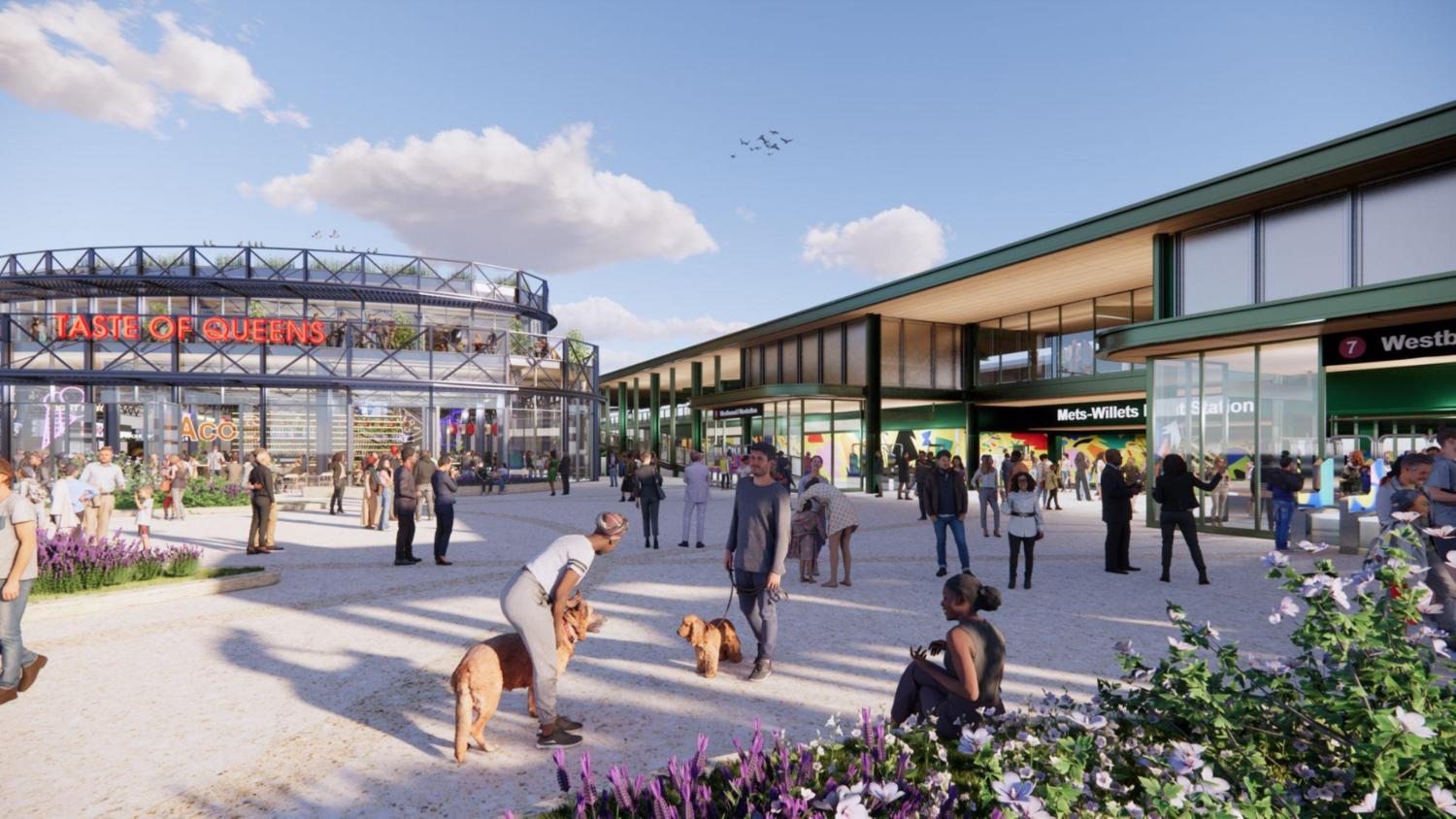BY CAMILLE LUONG For The Chief
With just three out of an initial eight casino proposals left in the running in New York City, Queens community members continue to express strong opposition to one in their borough. More than 250 residents, community members and elected officials convened Sunday to discuss the socioeconomic impacts of casinos in their community during a town hall at the Muslim Center of New York in Flushing.
With MGM in Yonkers dropping out of the race just last week, all three remaining proposals would be located within a 10-mile radius of each other: Metropolitan Park in Flushing, Queens; Resorts World New York City in Jackson Heights, Queens; and Bally’s Bronx in Throggs Neck. Queens community members say that casinos in their backyard — along with the spatial cluster of casinos that could be created if all three proposals are approved — would greatly harm the borough’s predominantly working-class, immigrant community.
The Metropolitan Park proposal has garnered particular resistance from the community, especially because of State Senator John Liu’s push to abandon public parkland in Flushing for the casino’s development. Compared to Resorts World’s Jackson Heights proposal, which already operates as a “raceino” with an existing racetrack, slot machines and other non-live table games, Metropolitan Park would create an brand-new casino complex in the middle of Queens.
“My husband and my son are both gamblers,” Baojin Qiu, a Chinese immigrant home-care worker in Flushing, said at the town hall. “Our family is broken because of this. We sold our house, we sold our business. I am forced to work 24-hour workdays. And now, a casino in our own backyard. John Liu, you are destroying our neighborhood!”
Community members also say that in addition to bringing gambling addictions, a casino will drive up rents, displacing working-class residents and existing small businesses. According to a poll by State Senator Jessica Ramos, who represents Jackson Heights and other Queens neighborhoods, 67 percent of residents completely oppose the Metropolitan Park proposal.
The fate of the casino battle now falls to the Gaming Facility Location Board, which will conduct a financial analysis of each proposal, including how much the casinos will maximize state and local revenues, and how many quality jobs the gaming facility will bring. According to existing proposals, all three casinos are projected to bring 15,500 permanent jobs and about 75,500 indirect and direct construction jobs.
But residents are skeptical of these promises of jobs and financial gain. “The permanent jobs usually found in this kind of entertainment complex, they’re usually not well-paying enough to actually sustain a family living in Queens,” Jackson Heights resident Alexis Kaloyanides said at the town hall. “The number of jobs will be far less than the number of families who will sink deeper and deeper into debt with the presence of a casino.”
Atlantic City’s analog
Without existing casinos in New York City, city residents travel to Atlantic City, New Jersey. But casino-goers would likely rather stay closer to home most of the time.
In addition to keeping the gambling industry out of their backyard, in part to prevent gambling addictions, community members also want to avoid the socioeconomic damage they say is bound to ensue wherever a casino is built.
“In Atlantic City, there are several casinos, and yet the surrounding communities don’t flourish in the way that they’ve been promised,” Ramos said.
“Atlantic City has a poverty rate 2.5 times that of Queens and cannot sustain a grocery store,” continued Kaloyanides. “This idea that casinos improve local economies has been disproven again and again. There’s no multiplier effect for small businesses. They’re designed to keep you trapped inside for hours.”
Moving forward, community members are organizing a rally in November to express continued disapproval of the casino.

